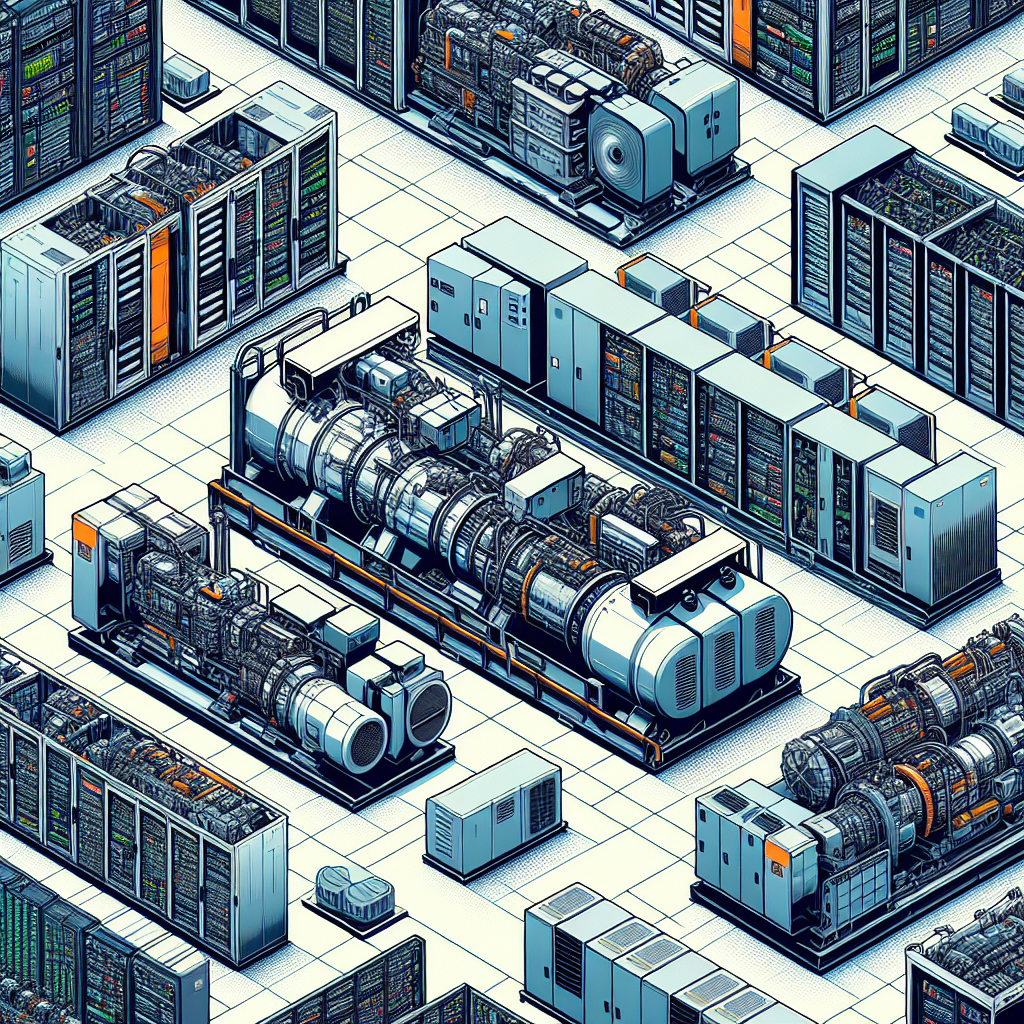Understanding the Different Types of Data Center Generators
Data centers are essential for storing and processing large amounts of data for businesses and organizations. To ensure uninterrupted operations, data centers require reliable power sources, such as generators, in case of a power outage. There are different types of generators used in data centers, each serving a specific purpose and providing varying levels of power backup.
Diesel Generators
Diesel generators are the most common type of generators used in data centers. They are reliable, efficient, and can provide power for an extended period of time. Diesel generators use diesel fuel to power an engine, which in turn generates electricity. They are capable of handling high loads and can quickly ramp up to full capacity when needed. Diesel generators are often used as the primary power source in data centers, providing backup power during outages.
Natural Gas Generators
Natural gas generators are becoming increasingly popular in data centers due to their lower emissions and cost-effective operation. These generators use natural gas as fuel to power an engine, which generates electricity. Natural gas generators are more environmentally friendly compared to diesel generators, as they produce fewer emissions. They also require less maintenance and have a longer lifespan. However, natural gas generators may not be as reliable as diesel generators during prolonged power outages, as they rely on a continuous supply of natural gas.
Hybrid Generators
Hybrid generators combine two or more power sources, such as diesel, natural gas, and batteries, to provide backup power for data centers. These generators offer increased flexibility and efficiency, as they can switch between different power sources based on demand and availability. Hybrid generators are ideal for data centers with fluctuating power requirements or those looking to reduce their carbon footprint. They provide a reliable and cost-effective solution for ensuring uninterrupted operations during power outages.
Battery Backup Systems
Battery backup systems are used in conjunction with generators to provide additional power backup for data centers. These systems store energy in batteries, which can be quickly deployed in case of a power outage. Battery backup systems are ideal for providing instant power during grid failures or generator startup delays. They are also useful for reducing the load on generators and extending their lifespan. However, battery backup systems have limited capacity and may not be sufficient for prolonged outages.
In conclusion, understanding the different types of data center generators is essential for ensuring reliable and continuous power backup. Diesel generators are the most common and reliable option, while natural gas generators offer a more environmentally friendly alternative. Hybrid generators combine multiple power sources for increased flexibility and efficiency, while battery backup systems provide additional backup power. By choosing the right type of generator for their specific needs, data centers can ensure uninterrupted operations and protect their valuable data.


